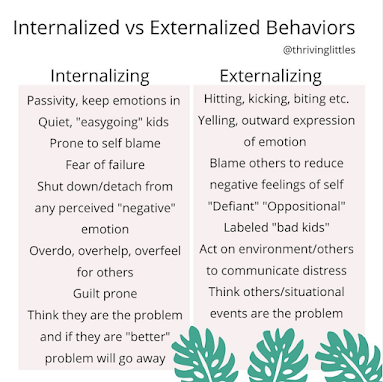Adolescents: overcontrolled or undercontrolled ?

ADOLESCENTS : OVERCONTROLLED OR UNDERCONTROLLED? As parents pour in the psychiatry OPD with their problematic adolescent children, it puts us to ponder on the fact why the child's emotion or behaviour become problematic for parents and others if at all........... There are 2 broad categories of issues faced in adolescents: INTERNALISING DISORDERS AND EXTERNALISING DISORDERS. Whereas internalizing problem behavior is focused on the own self (e.g., withdrawal, anxiety, depression, emotional problems), externalizing problem behavior occurs in interaction with the social environment (e.g., aggression, impulsivity, deviance, hyperactivity). Internalising disorders are common in children of OVERCONTROLLING PARENTS while externalising ones are commonly seen in children of UNDERCONTROLLED PARENTS. These are established risk factors for many unpleasant outcomes and psychopathology in adulthood. Understanding them is important as they are in association with numerous unfavor...



